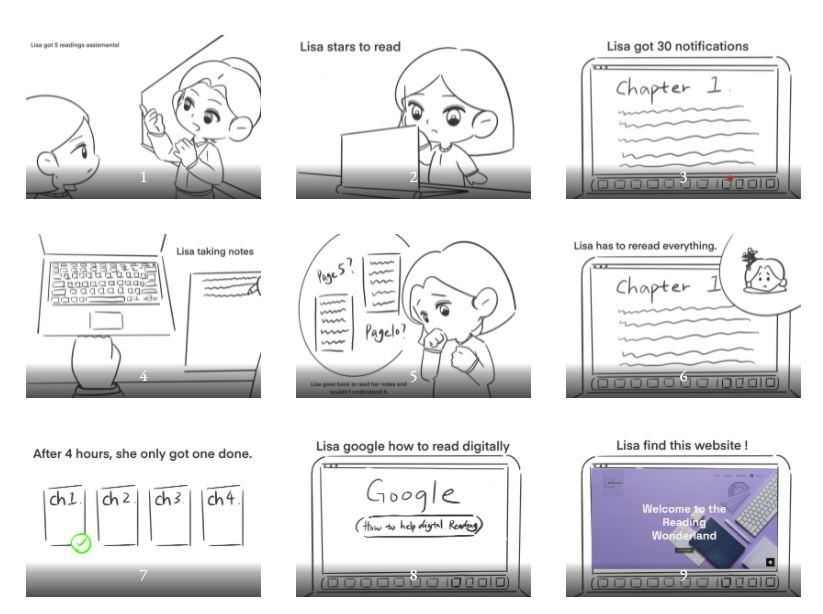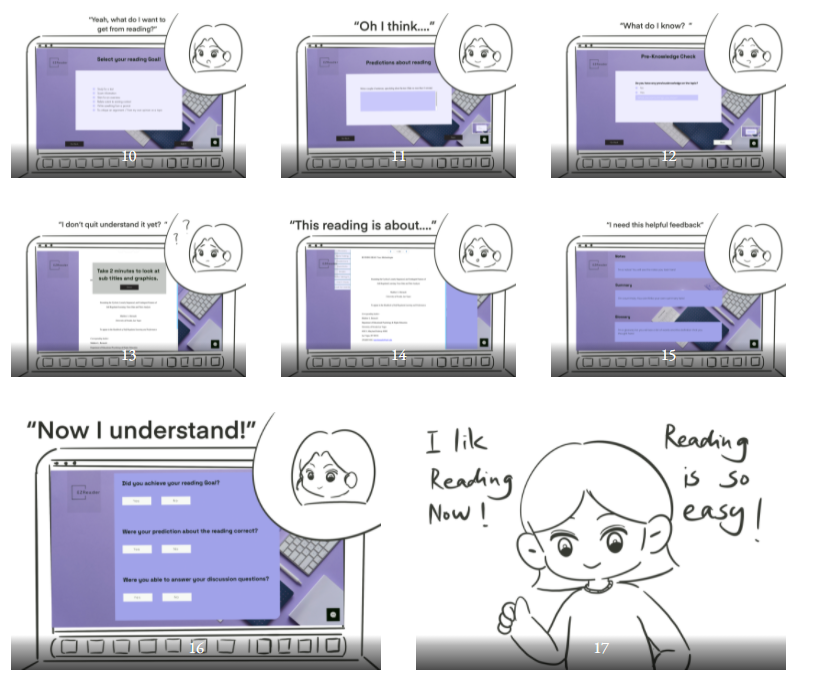
PagePal digital prototype
Target Learners
College and graduate students
Learning Problem
University students struggle with online academic texts and cognitive load
Needs Analysis
People can search and read about more information than ever with increased access to the internet and various digital devices. Today, online reading has taken over much of academic reading for students. Library databases are easily searchable and contain an online version of thousands of books and scholarly articles; therefore, students do not need to go to a library, let alone leave their rooms, to access their class readings. Online reading has also increased the democratization of information, as students do not need to pay as much, if anything, for textbooks and other resources for class. Professors can easily link websites and PDFs of readings to Learning Management Systems and see which students view and download the readings.
There are a multitude of benefits afforded by digital access to academic resources. However, research shows that, while it is easy to read more content than ever before, we do not comprehend as much as we do when we read a hard copy of a text. We are more easily distracted by other notifications and functions on our devices, and the various formats in which the text is presented online are not as conducive to a concept called “deep reading”, the process of reading that promotes critical thinking and a thoughtful engagement with the text. We are swiping and scrolling and changing the window and font size, and many PDFs of scholarly articles or books do not have an option for highlighting or annotating. The process of scrolling makes it easier to skim and make assumptions about a reading, and it is much easier to lose track of where you are in the reading. Students who have access to tablets that can mimic print reading processes like page turning, annotating, highlighting, and notetaking have better reading experiences than those who only have access to a laptop. However, most students are reading academic texts on their laptops. There are some apps that exist to help with online reading comprehension and focus, but many are only compatible with tablets.
StroryBoard

